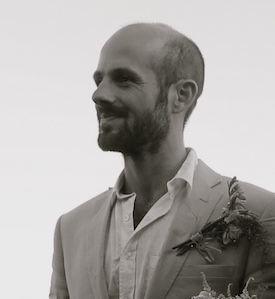Our attitude to this virus will define generations to come, says Giles Dawnay
 Covid-19 is the new biological reality that we now stand toe to toe with, competing with us for the life we believe we want to lead. Yet it has also become the umbrella term by which we package all our hopes, fears, and uncertainties. It is the manifestation of the shadow that stalks all of us, both individually and collectively. It is the other, the unknown, the prospect of annihilation, the loss of control, the bogeyman, the monster under the bed, the ghost in the cupboard.
Covid-19 is the new biological reality that we now stand toe to toe with, competing with us for the life we believe we want to lead. Yet it has also become the umbrella term by which we package all our hopes, fears, and uncertainties. It is the manifestation of the shadow that stalks all of us, both individually and collectively. It is the other, the unknown, the prospect of annihilation, the loss of control, the bogeyman, the monster under the bed, the ghost in the cupboard.
Covid-19 has the capacity to take it all away from us: our loved ones, our bodies, our security, our freedom of movement, our money, our frenetic lifestyles, our desire to do what we want when we want. Hanging above all of us right now is the deep possibility of the loss of an old way of life that we didn’t even know we took for granted. Covid-19 is the manifestation of the scattering of total biological chaos among our ordered pigeons.
Yet at the same time, we have set the stage for this disaster. The conditions for covid-19 to thrive could not exist without the way we have structured the world. In another epoch, perhaps it would have been localised, wreaked havoc, and then died with those unfortunate enough to have caught it. But the majority of the human world is so small now, so reachable. This is a virus born of our own evolution, and the virus has been able to exploit those weaknesses quite magnificently.
Throughout human history, creation and destruction have walked hand in hand. Human progress is as much thanks to disaster as it is to ingenuity. Each disease we have faced in the past has made us more resilient as a species in our understanding of how we can co-exist with and control the natural world. Take, for example, how Ignaz Semmelweis helped to change our understanding of basic hygiene (and therefore health) by finding out that hand washing turned the tide on the number of women dying from puerperal fever in his hospital. Or look at how a cholera outbreak in Soho led John Snow to create some of the founding principles in modern epidemiology. Disease and progress, it could be argued, need each other.
To all of us covid-19 will mean something different as the reality of it emerges from the shadows we all carry. It threatens to reveal all the aspects of ourselves that we can keep hidden and maintained under the guise of a controlled and ordered society. All of us will fear it differently, all of us will be tested differently, all of us will be unmasked differently.
Yet the great irony, like so many hero/villain narratives, is that we are not that different from this virus. We’re both simply doing what is in our nature: to propagate, spread, reproduce, and evolve. In many ways, it is simply mirroring the human organism that it has found a home in. Arguably, the real enemy here could be ourselves, and how we choose to respond to its threat. Our attitude to this virus, and how much respect we show it weighed up against how we believe we want to continue our current lives, will define generations to come.
As this struggle for life begins to emerge, the rest of the natural world watches impassively on. In many of our great cities around the world, they say that for the first time in years, the birds have been heard to sing.
Giles Dawnay is a GP trainee and writer from Birmingham and West Mids Deanery. He is a late starter in the medical world, having gone to medical school at 27. He first completed a degree in English Literature and then worked overseas as a volunteer coordinator and expedition leader prior to signing up. Twitter @gilesdawnay
Competing interests: None declared.
